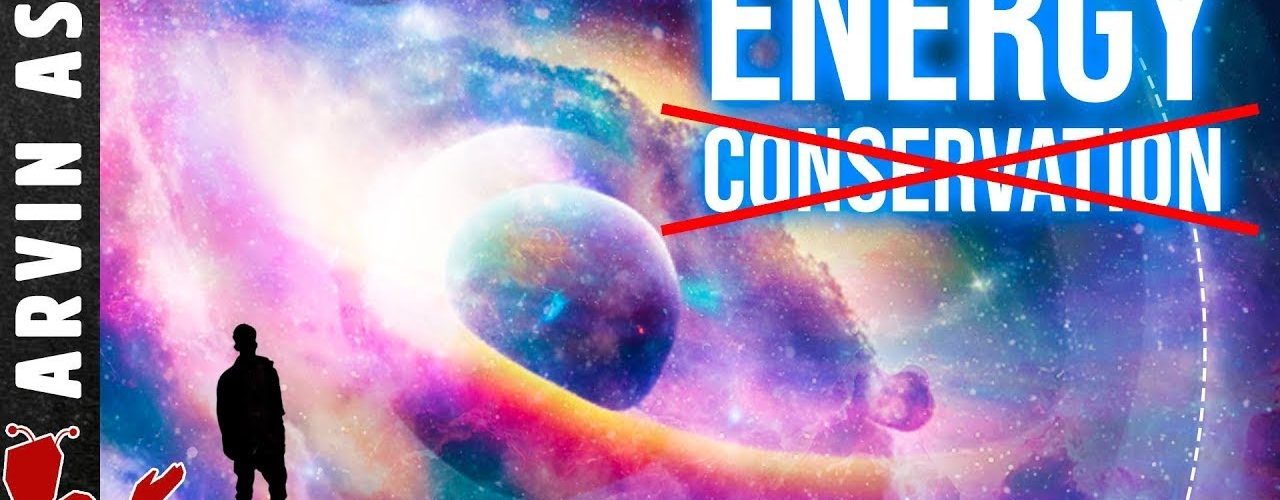The law of energy conservation may be the most fundamental law in physics. It says that overall energy is always conserved. It can never be created nor destroyed – it can only change form. But this law is probably violated by our universe as a whole.
Specifically, the Energy Conservation law states that in an isolated system, that is a system in which no matter or energy enters or leaves, overall energy remains the same. Energy only changes form.
But isn’t the entire universe a well-defined isolated system? Since the universe if everything, shouldn’t it be the ultimate isolated system? It turns out that the answer not straightforward. If we want to include the whole universe, we have to include everything from the very small to the very large. Let’s start with the very small. The behavior at the micro-scale is described by quantum mechanics.
At the quantum level, the concept of energy conservation is explicitly defined. This is shown in the Schrodinger equation, which states that total energy is equal to kinetic energy plus potential energy. Energy is conserved according to this equation. So there is no problem at micro scales.
But at the largest scales, where Einstein’s theory of general relativity applies, this is not the case. What his field equations show is that the derivative of the energy-momentum tensor is zero. So the simplified way to think of this is that the change in energy and momentum remains zero. This is called the principle of energy momentum conservation.
This equation is not saying that energy stays the same, only that the combination of energy AND momentum remains the same. This means that energy can change, as long as the combination of energy and momentum doesn’t change. So, it tells us that at large scales, energy is really not conserved in the universe.
Several observations confirm this. First is the expansion of the universe. Empty space has energy. If the volume of this space is increasing then energy is increasing. We know that the energy density of spacetime doesn’t change, but energy density is energy over volume. If the volume increases, then energy also increases.
Another consequence of an expanding spacetime is the observed redshift. The light from distant galaxies is redshifted. As the universe expands, the wavelength of light also expands, which means it loses energy. So light is losing energy within an expanding spacetime from our perspective.
Could it be that the energy that light waves lose turns into dark energy, thus conserving energy overall? The answer is no. I explain why in the video.
In an expanding universe, we don’t even know what the size of the universe really is, so we can’t define what the isolated system would be. We only know the observable universe, which is about 94 billion light years in diameter. But there is a cosmic event horizon which is the end of this observable universe. We don’t know how big big the universe is beyond this horizon.
If the universe is infinite, then we would have to conclude that the universe likely does not conserve energy.
Evan if the universe is not infinite, it is probably still the case that it is much much larger than the 94 billion year diameter that we observe. We are losing energy of the galaxies that are moving out of the observable universe.
#energyconservation
Some experts believe that overall energy is conserved in an expanding universe because, they say, you have to include the energy of the gravitational field along with the energy of the matter and radiation. In other words, as distances between objects increase, the increasing gravitational potential between them, which is a kind of negative energy, also increases, balancing overall energy.







